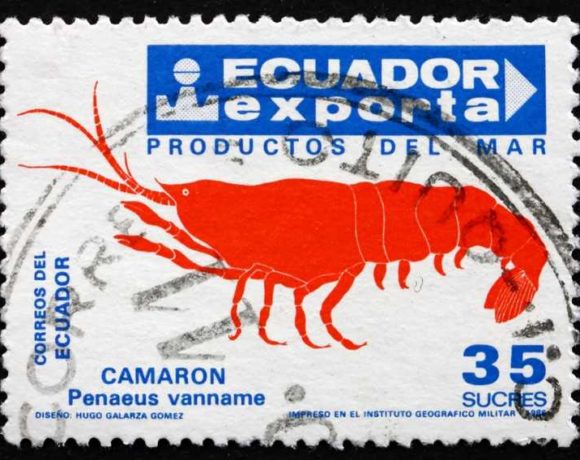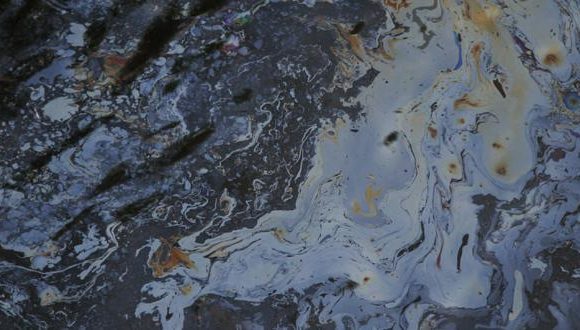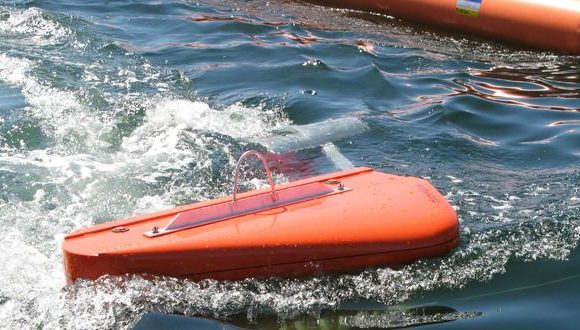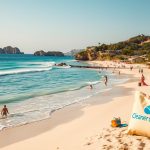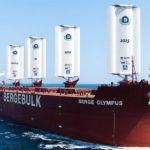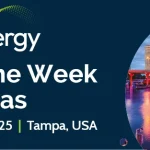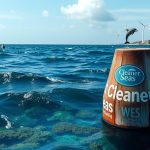ITOPF – Promoting Effective Response And Technical Services To Marine Spills
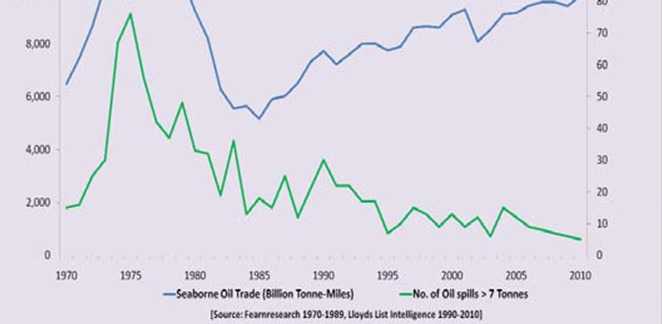
The International Tanker Owners Pollution Federation (ITOPF) is a not-for-profit organisation involved in all aspects of effective response of ship-source spills in the marine environment. Over the past 40 years, ITOPF’s technical team of marine biologists, physicists, engineers and chemists has acquired unparalleled spill response experience and expertise by attending more than 700 spills in nearly 100 countries – including such landmark cases as AMOCO CADIZ, EXXON VALDEZ, BRAER, ERIKA, PRESTIGE and HEBEI SPIRIT.
ROLE OF ITOPF
Established in 1968 after the TORREY CANYON incident, ITOPF is financed through subscriptions from shipowners Members and Associates, which are usually paid on their behalf by their Protection & Indemnity insurers (P&I Clubs). ITOPF’s membership comprises more than 6,000 tanker owners and bareboat charterers, who between them own about 10,800 tankers, barges and combination carriers with a total gross tonnage of 326 million GT. This represents almost all the world’s bulk oil, chemical and gas carrier tonnage. The ITOPF subscription gives its members access to objective, technical expertise including assistance in response to shipsource pollution.
Since the 1970s, the number of large oil spills (>700 tonnes) has dropped dramatically from 25 incidents on average per year to an average of three incidents per year in the 2000s.
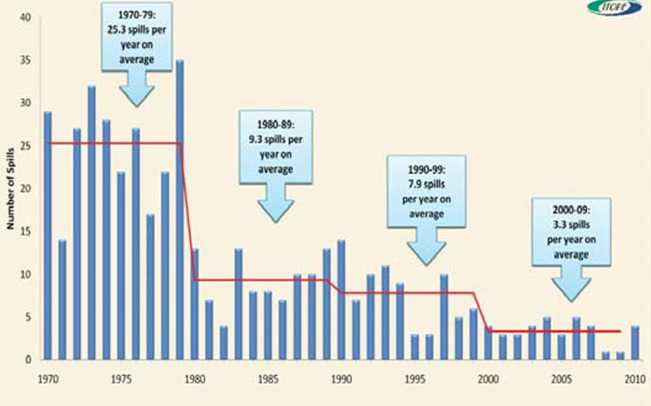
– Number of large (>700 tonnes) oil spills per year between 1970-2010. –
This significant progress has been the result of the constant efforts of shipping and oil companies as well as governments to improve both marine safety and pollution prevention measures.

– Seaborne oil trade versus the number of large oil spills. (ITOPF) –
Nevertheless, ITOPF’s involvement in marine spill response has remained steady over the years, with an average of 24 incidents attended annually. These attended spills, in recent years have been dominated by non-tanker incidents. Whilst the volumes of oil spilled are substantially less than in previous years, spills have tended to become more costly and complex to manage over the years of ITOPF’s existence.
The contribution of ITOPF to the maritime industry can be divided into five key areas, the most important of which is to attend on site at the time of an oil or chemical spill to promote effective response.
RESPONSE TO MARITIME SPILLS
When its support is required, the primary task of ITOPF is to evaluate the likely behaviour, fate and the impact of the oil or chemical in order to advise on appropriate clean up and mitigation strategies and techniques. ITOPF technical advisers working in the field utilise internal databases and resources to provide valuable information such as on relevant local environmental data, the availability of clean-up equipment and materials as well as contact details of lead authorities, local surveyors and other experts. In-house knowledge and databases also provide lessons and experience from previous spills that ITOPF has responded to in the past.
In all cases, the work of ITOPF is advisory and focuses on liaison with all parties involved to maximise co-operation in order to help ensure that measures undertaken which are technically justified and appropriate to the circumstances. The assistance is provided with a view to minimising pollution damage.
The above is often best achieved by ITOPF establishing a the on-site. ITOPF’s recommended course of action will vary depending on the circumstances, for example the availability of local resources and capabilities. If required, ITOPF can supplement the local response by helping organising the clean-up as well as procuring equipment. On other occasions, ITOPF’s role might be simply to monitor the situation and provide reports. Such observations may be used in subsequent analysis of claims; another task undertaken by ITOPF for its Members, Associates, their insurers and/or the International Oil Pollution Compensation Funds (IOPC Funds).
DAMAGE ASSESSMENT AND CLAIMS ANALYSIS
Even small spills can generate substantial claims associated with alleged environmental impacts, and the amount of claims against shipowners and their insurers have increased both in number and in magnitude over the last 30 years. Technical advisers can investigate possible environmental impacts as well as damage to marine resources (such as fisheries and mariculture) and economic impacts (e.g. tourism). Because of their on-site involvement, ITOPF is regularly asked to assess the technical merits of claims for compensation.
ITOPF’s technical advisers have a strong scientific understanding on how pollution affects the marine environment and our 40 years of practical experience and collaboration with central governments, local authorities and experts are major assets when establishing monitoring programs and assessing environmental damage.
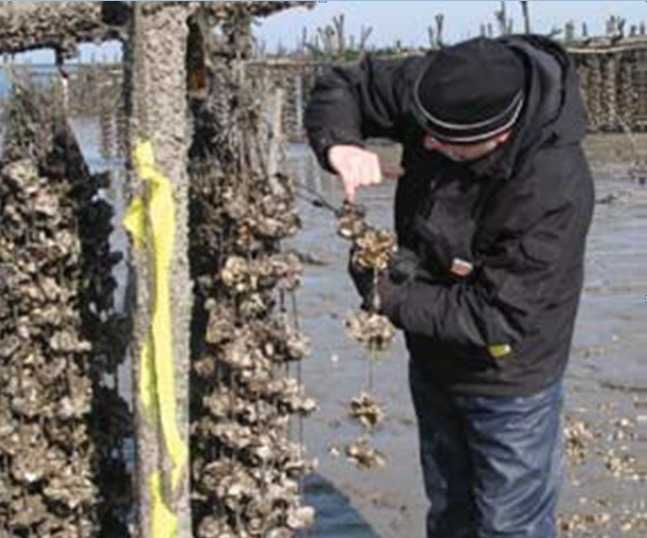
– ITOPF Technical Adviser surveying aquaculture facilities after the spill from HEIBEI SPIRIT. –
ITOPF can also be actively involved in helping claimants in the presentation of claims into a format that will increase the efficiency of the compensation process. The Federation recently assisted the International Maritime Organisation (IMO) and the United Nations Environment Programme (UNEP) in publishing a manual on assessment and restoration of environmental damage.
CONTINGENCY PLANNING AND ADVISORY WORK
ITOPF is involved with many key partners from maritime organisations such as IMO and the IOPC Fund, where ITOPF has observer status. ITOPF actively participates in the OPRCHNS Technical Group and works closely with maritime industries through its attendance at IPIECA’s working groups, such as OSWG (Oil Spill Working Group) and ITAC (Industry Technical Advisory Committee). These groups act as a forum for information exchange in the areas of spill preparedness, response operations, response technology and training.
ITOPF encourages and supports the development of comprehensive, realistic contingency plans. ITOPF’s experience in marine spill response can be transposed to assisting government agencies, international agencies and local experts to establish such plans.
As well as advising on the creation of contingency plans, ITOPF carries out various consultancy assignments, including providing advice for spills from non shipping sources such as offshore oil installations and pipelines.
TRAINING AND EDUCATION
To ensure the effective application of contingency planning for marine spills, personnel need to carry out regular training to keep their skills sharp. ITOPF participates in drills and exercises undertaken by governments and companies to test existing plans. In addition, ITOPF participates widely in, and sometimes organises, worldwide training courses and seminars to ensure that those involved in spill response are aware of their roles and responsibilities and have the knowledge and capability to undertake them. Such courses enable all to be aware of new technological and regulatory developments in the field.
As an example, ITOPF is working closely with IMO and its affiliated regional centres to organise workshops where oil spill exercises are carried out to test the effectiveness of local contingency plans (e.g. IMO Level course 3 in Malaysia in February 2011).
Events like these are also aimed at building relationships between ITOPF and scientific organisations, government authorities and spill responders. Chinese authorities recently looked to ITOPF to assist in improving their preparedness and ability to respond to marine spills. The collaboration resulted in reciprocal internship and training courses throughout 2010, leading to a greater understanding of the role of both parties in spill response.
R&D AND INFORMATION
Ensuring the most effective response to spills requires one to remain at the forefront of research and development of new technologies. ITOPF, on behalf of shipowners, helps promote and coordinate various R&D projects worldwide in order to further develop techniques on cleaning and waste management to the spill response community. ITOPF has supported the IMO R&D forums with both financing and expert advice and has been a privileged partner in the UK Maritime and Coastguard Agency’s Research Advisory Committee for the last seventeen years. Other examples of recent projects ITOPF has been involved with include work on detecting and recovering sunken oil, on HNS (Hazardous and Noxious Substances) and contributing to a 3-year CEDRE project (Centre de Documentation, de Recherche et d’Experimentation sur les Pollutions Accidentelles des Eaux, France) on dispersed oil in near shore environments.
ITOPF is an important source of information for people working in the spill response field and researchers, much of which is available on line. The Federation keeps an extensive database of spills, listings of country profiles and a set of ITOPF’s own Technical Information Papers (TIPs). ITOPF has also developed its own Geographic Information System (GIS), where spills can be displayed on maps and analysed in parallel with tanker traffic, cargo volume routing data and the status of international conventions.
For its ongoing contribution to the reduction and prevention of pollution of the ocean by ships, ITOPF received the Ocean Environmental Protection Award at the 2010 Sustainable Shipping Awards. Through ITOPF, the award distinguished shipowners and their insurers for their long-term commitment on preventing chemical and oil spills and promoting effective response to limit impacts on marine environment. If you would like more information about ITOPF or would like to receive our publications electronically, please contact our Information Officer, Deborah Ansell, at deborahansell@itopf.com or consult our website at www.itopf.com

